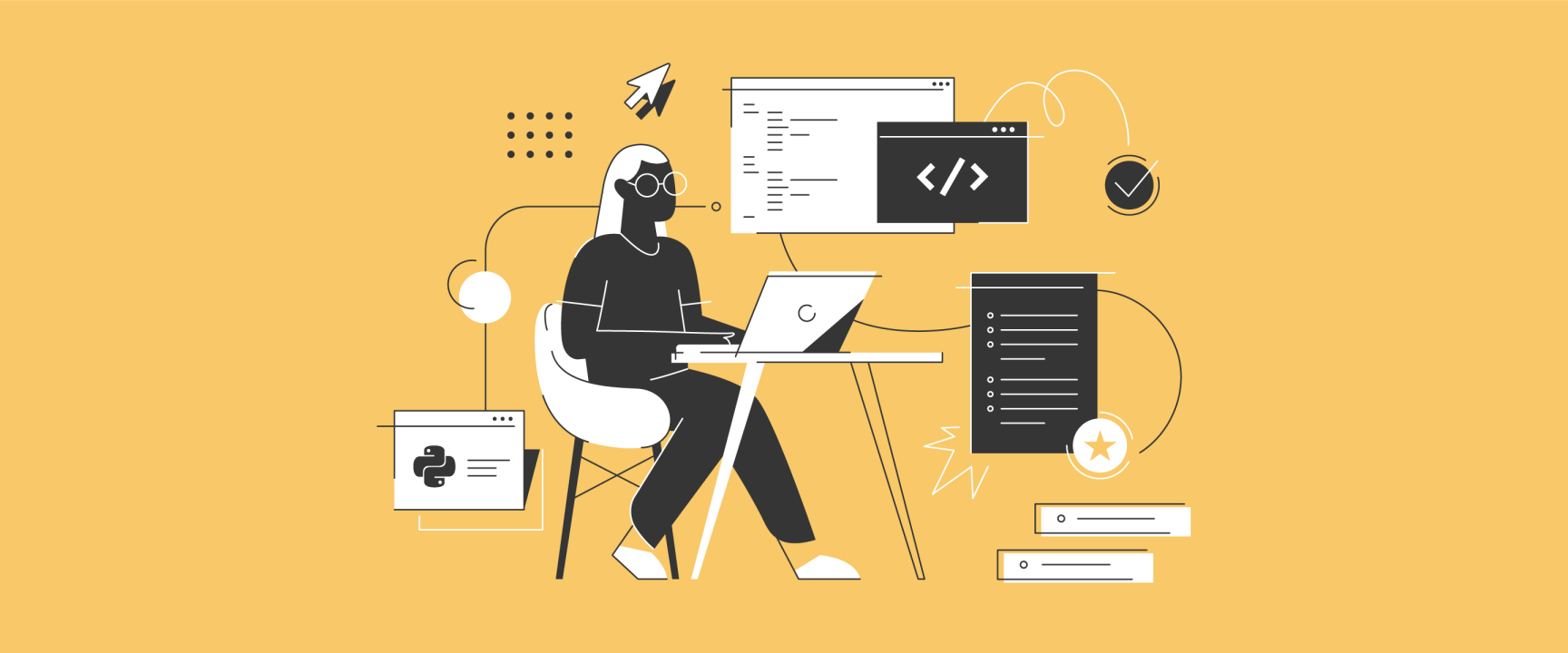The Python programming language has become a popular choice for developers, and it's easy to see why. It's not too hard to learn, powerful enough to handle complex tasks, and flexible enough to be used in various situations. But what do you need to know to become an expert Python developer? How do you get started? And where can you go from there?
Becoming a Python developer is not an easy undertaking. It requires dedication, practice, and discipline. The following steps will help you gain the skills and knowledge necessary to become a successful Python developer.
Explore the basics of Python
Python is a great programming language to learn at first, because it's widely used and easy to understand. You can be productive with Python in a short period of time, for starters. And, before you start, read through the documentation and tutorials on the official Python website. This is an easy way to learn Python from scratch and see its capabilities.
Learn to code
The most critical step in becoming a Python developer is learning to code. If you do not have a coding or computer science background, you can learn these skills on your own using online resources such as CodeAcademy, Udemy or LinkedIn Learning. If you have some experience but need more practice, try some of the tutorials on GitHub or Stack Overflow.
Learn about different APIs and frameworks
One of the best ways to get started with Python is by learning about its different APIs (application programming interfaces). These allow you to integrate your code with other applications or websites – for example, if you want something on your website that interacts with Facebook or Twitter, an API could be used for this purpose.
Frameworks are also a great way to get started with Python because they have pre-built functionalities that can be used immediately. However, they require a good background in the Python programming language and Object Oriented Programming (OOP). Once you’re more familiar with Python, you can reap the benefits of frameworks which would give you a good idea of how other developers use Python in their workflows and applications. Some popular frameworks include Django, Flask, Pyramid, Bottle, and Tornado.
Install the latest Python version before you get started on your tools.
It’s important to note that once you have mastered the basics of coding, it is time to choose which tools will best suit your needs as a Python developer. Every developer has their own tools for writing code – things like IDEs (integrated development environments) or text editors – and knowing what tools work best for you will help prevent frustration down the road.
Several options are available, including PyCharm (which has a free version and a paid version) and Sublime Text 2 or 3.
Get involved in open-source projects
Open-source projects are a great way to learn how real-world developers use Python to build apps and services. You'll be able to see how other people write code and use libraries and frameworks. This will help you better understand how everything works together in practice.
Jupyter Notebook is a great place to start. They are interactive documents that allow users to combine code with rich text elements such as equations, text sections and images into one document. They are great for sharing your code with others because they contain everything needed for reproducing results: data sets, code snippets and results outputted as tables or plots. They also make it easy for others to contribute by adding their own code snippets or comments on existing ones.
Start building a workflow on your own
The best way to learn is by doing, so start building a workflow. It doesn't have to be huge or complicated at first; something simple that shows off what you've learned so far will do nicely. For example, a blog, polls, or a to-do application are great places to start.
Practice makes perfect
The only way to improve your Python development skills is through practice – lots of it! Start with smaller tasks and move on to bigger ones as your confidence and experience grow. There are tons of resources out there for learning how to develop with Python, so take advantage of them.
If you're interested in becoming a Python developer, try to dedicate at least three months to learn the language. The earlier you begin, the easier it will be for you to become skilled in this skill and the better your chances of being hired as a Python developer. Tests and challenges strengthen your skills in Python. Practice your coding skills here
Find a mentor
Finding someone who has already been through the process will help you avoid mistakes and get started on the right foot. If you have someone internally who can help guide you through your learning process, all the better.
Things to remember
Learning a new skill requires dedication and hard work. It won’t be easy, but the rewards are worth it. Here are a few tips to remember on your Python development journey:
Be patient. It will take time for you to learn Python, but don't give up. You'll get there one step at a time.
Start simple. Don't jump into advanced topics immediately; start with the basics and build from there. You can always go back later, if needed.
Ask questions. When confused or frustrated; nobody knows everything! Your peers will be able to help you understand what's going on better than anyone else can—and they'll appreciate it too!
This article only touches the surface of what you'll learn when you're working on your own projects and following your own development learning path.
What's important to keep in mind is that there are many different paths to mastery, so long as you find one that works for you. In the end, it's tenacity and dedication that'll determine how quickly your developer career will progress.





